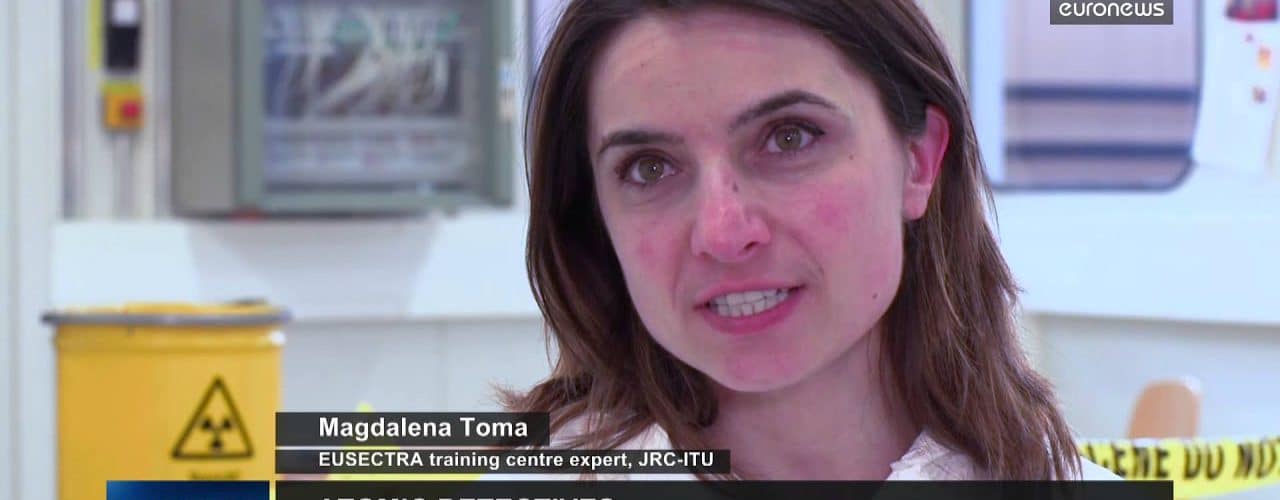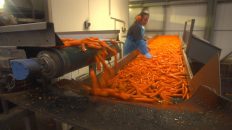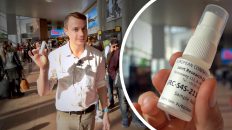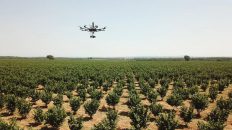Futuris reporter Denis Loctier looks at the work of the ‘atomic detectives,’ scientists that keep us safe from the risk of radioactive criminality: “Nuclear terrorism is a growing threat, as more extremist organisations get closer to obtaining materials for a bomb. So, what can we do about it?”
Another day at a European border checkpoint. Radiation detectors raise the alarm. A truck is searched. Now why would someone conceal military-grade uranium in the bags of naturally radioactive fertilizer.
Jean Galy is the EUSECTRA Training centre coordinator, JRC-ITU: “If there is a buyer then, then you have a market and you can make a lot of money. Then there are those who want to carry out a terrorist attack, they can use the material to make a dirty bomb, a radio-active bomb or something else.”
The investigation begins. Clues like the contacts on the driver’s mobile phone lead to an address where the operation was planned. At the crime scene, a nuclear forensics team uses special equipment and expertise to collect evidence.
Magdalena Toma, is a EUSECTRA training centre expert, JRC-ITU: “We look for two things. We look for the presence of radioactive material, to see if there is any, and if there are radioactive materials we have to take measurements, and then we look for traces of classic forensics – like DNA, blood, hair, so that we can trace back who was working here – essentially to catch the bad guys!”
So, how much can we learn from a small sample of a radioactive material?
The experts at the Joint Research Centre Institute for Transuranium Elements in Karlsruhe use highly sophisticated instruments such as a mass spectrometer to find out where the radioactive material comes from.
Magnus Hedberg is a researcher in mass spectrometry, JRC-ITU: “We only need a few tens of particles, and then on each particle we will do a precise isotopic measurement. That will tell us what type of material it is. Perhaps it’s just natural uranium, perhaps a fuel material, perhaps it’s weapon material – we will see.”
These measurements need to be combined with other techniques, such as microscopy that reveal the distinctive structure of the confiscated material.
 Thierry Wiss is a material scientist at JRC-ITU: “We trace the origins in an attempt to determine the manufacturing process, take powder, or the fine structure of some tablets, we check the grain size and forms inherent in the morphology.”
Thierry Wiss is a material scientist at JRC-ITU: “We trace the origins in an attempt to determine the manufacturing process, take powder, or the fine structure of some tablets, we check the grain size and forms inherent in the morphology.”
Even minute details, such as certain impurities in the radioactive material, can be detected to pinpoint the factory of origin.
Maria Wallenius is a radiochemist, JRC-ITU:
“We know the people using different techniques, so we can always ask for advice, because one person cannot know everything so that’s why we need help from colleagues from nuclear fuels, or material science, who can contribute to a nuclear forensics investigation.”
In the past 20 years, these “atomic detectives” have examined around 50 cases. So is the threat rising, or is it decreasing with time?
Klaus Mayer is head of the nuclear forensics team, JRC-ITU: “That’s a very difficult question. The cases that we see, that get reported are just the tip of the iceberg. In this respect, I’d like to quote a former IAEA Director general who said, “We don’t know what we don’t know.”





